Invasive plants killed off in deep Highland gorge
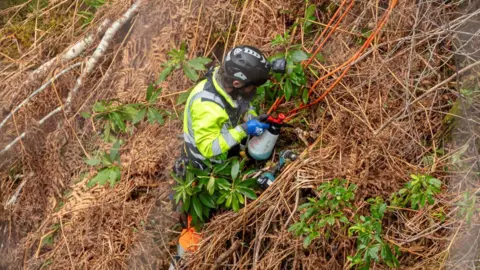 NTS
NTSInvasive non-native plants have been cleared from crags of a 60m (197ft) deep gorge in the Highlands.
Corrieshalloch, south of Ullapool, was created by meltwater from glaciers at the end of the last ice age about 11,000 years ago, and has a 45m (148ft) waterfall.
The mile-long canyon takes its name from Gaelic for "ugly hollow".
National Trust for Scotland (NTS) received funding for the work which involved contractors abseiling into the gorge.
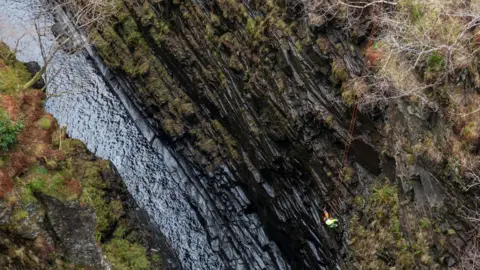 NTS
NTS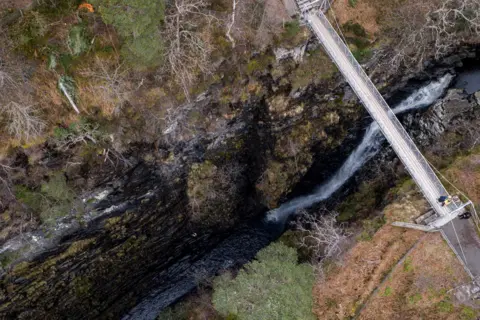 NTS
NTSThe plants removed or killed off included Japanese knotweed, rhododendron ponticum and American skunk cabbage.
The species, brought to the UK from other parts of the world for planting in gardens, can smother native plants and damage fragile habitats.
NTS said the work at Corrieshalloch Gorge National Nature Reserve was part of its wider efforts to conserve native species.
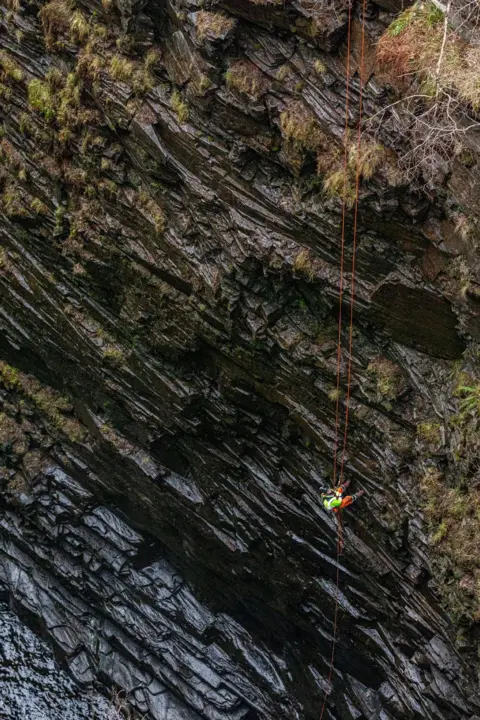 NTS
NTS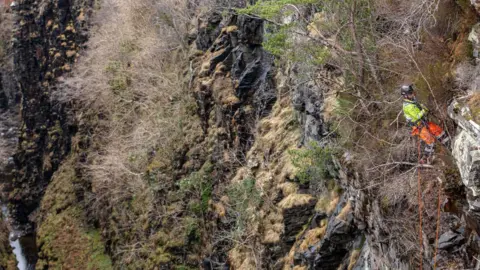 NTS
NTS